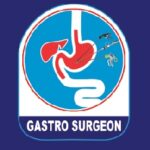Gall bladder stones, also known as gallstones, are a common medical condition that affects millions of people worldwide. Unfortunately, there are several myths and misconceptions surrounding this condition.
In this blog post, let us debunk these myths and shed light on the true symptoms of gall bladder stones, enabling individuals to recognize the signs and seek appropriate medical attention.
Myth #1: Only Older Adults Develop Gallstones
One prevalent myth is that gallstones only affect older adults. While it is true that age can be a risk factor, gallstones can develop in people of all ages, including children and young adults.
Hormonal changes, obesity, a high-fat diet, and certain medical conditions can contribute to the formation of gallstones, regardless of age.
Myth #2: Gallstones Always Cause Severe Abdominal Pain
Contrary to popular belief, not all gallstones cause severe abdominal pain. While pain is a common symptom, the severity can vary from mild discomfort to excruciating attacks.
Some individuals may experience symptoms such as indigestion, bloating, and nausea without significant pain. It is important to recognize that the absence of severe pain does not rule out the possibility of gallstones.
Myth #3: Diet Has No Impact on Gallstones
Diet plays a crucial role in the development and management of gallstones. Consuming a high-fat, high-cholesterol diet increases the risk of gallstone formation.
On the other hand, a diet rich in fibre, fruits, and vegetables, along with adequate hydration, can help prevent the formation of gallstones. Making healthy dietary choices is essential for overall gallbladder health.
Myth #4: Gallstones Always Require Surgery
Not all gallstones require surgical intervention. As mentioned earlier, if the stones are not causing symptoms or complications, a conservative approach may be adopted.
However, it is important to monitor the condition regularly and seek medical advice if symptoms worsen or new complications arise.
Common Symptoms of Gall Bladder Stones
Abdominal Pain: The most common symptom of gallstones is pain in the upper right abdomen, which may radiate to the back or right shoulder. The pain can be intermittent or persistent and may occur after eating fatty or greasy foods.
Indigestion and Nausea: Gallstones can cause indigestion, bloating, and a feeling of fullness after meals. Nausea and vomiting may also occur.
Jaundice: In some cases, gallstones can block the bile duct, leading to jaundice. Symptoms may include yellowing of the skin and eyes, dark urine, and pale stools.
Changes in Bowel Movements: Gallstones can affect the normal flow of bile, leading to changes in bowel movements, such as diarrhoea or pale-coloured stools.
Fever and Chills: If a gallstone causes inflammation or infection in the gallbladder, it can result in fever and chills.
Conclusion
Gall bladder stones are a common condition that can cause discomfort and complications if left untreated.
By debunking the myths surrounding gallstones and recognizing the true symptoms, individuals can seek timely medical attention and receive appropriate treatment.
Whether it is through lifestyle modifications, medication, or surgery, the management of gallstones aims to alleviate symptoms and improve overall well-being. Remember, it is important to consult expert healthcare professional for an accurate diagnosis and personalized treatment plan.
If you experience any of the above symptoms or suspect gall bladder stones, consult expert Dr. Ramesh Baipalli, gallbladder surgeon in Visakhapatnam.
Our expert staff can conduct a thorough evaluation and gallbladder surgery in Visakhapatnam, which may include physical examination, blood tests, imaging studies (such as ultrasound or CT scan), and other diagnostic procedures to confirm the presence of gallstones.
Call us today to schedule your appointment!


